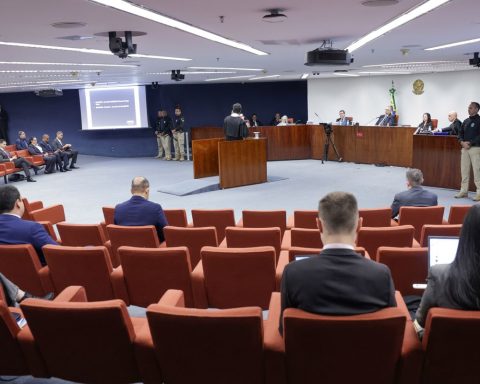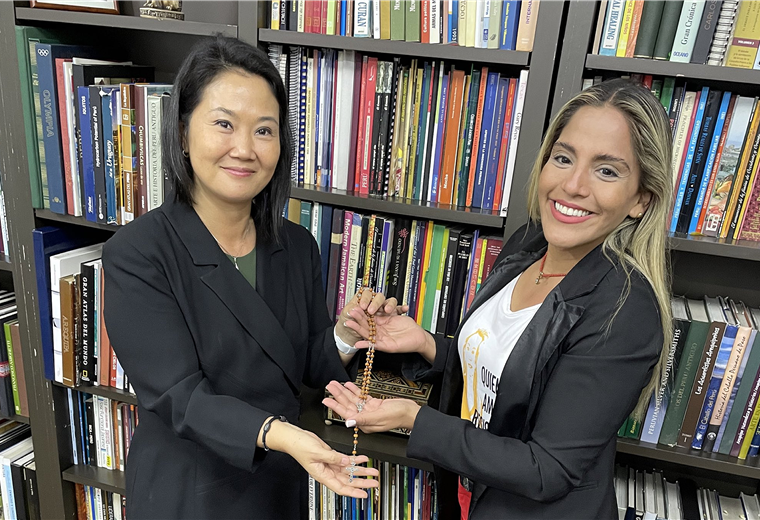Mental disorders are a consequence of a biological vulnerability inherited by humans, of the influence that exists within families and of environmental factors, said Professor Jair Mari, from the Department of Psychiatry at the Federal University of São Paulo (Unifesp), when participating today ( 6) of the 39th Brazilian Congress of Psychiatry, in Fortaleza.
With the pandemic, environmental stressors have become much more important, especially in large urban centers. “Because we live in a moment of seclusion, of distance, of threat, of deaths. Several unusual situations. We often say that it was one of the greatest psychological experiments that humanity has ever faced,” said Mari.
In the interaction between biological and environmental factors, with the weight leaning towards the growth of environmental factors, an epidemic of mental disorders is expected, said the professor, in an interview with Brazil Agency. According to Mari, the most emerging problems involve several situations, and mental disorders were already among the conditions in which there was normally an increase in the burden of diseases.
“While you have conditions, like cancer and cardiovascular disease, that are reducing disability, even before the pandemic, disability related to mental disorders and, in particular, depression, was already increasing,” said the psychiatrist. Therefore, this overload, “very likely”, tends to increase even more. Several mental disorders related to what happened are expected and will tend to grow, he added.
teenagers
With confinement, adolescents, who need social contact and parental support, started to use social media more intensively, which brought risks, such as sex bullying, virtually imagined or actual rejection and sanctions within a group. The professor recalled that, for an adult, two years go by more quickly than for adolescents, for whom that period is important in defining their sexuality, their future profession and the recognition that their peers have of them. Covid-19, however, has totally changed contact with people. For them, the period of covid-19 was remarkable and had consequences.
The use of the internet, video games, there was a lot of internet addiction, disorders associated with internet addiction. According to Mari, these are elements that were already appearing, and the problems were accentuated with the pandemic. Teenagers became very connected to the internet, and there was also the issue of social contagion. An example was the dissemination of news in schools, such as massacres, which quickly spread among students, or even copying movements such as anorexia nervosa and violence. “This much greater contagion than in our times of social media also brings something important in terms of mental health,” she said.
Mari also highlighted the vulnerability of adolescents to boredom and loneliness. “Before the pandemic, the data already denoted a high frequency of loneliness, which is the gateway to an important state of anxiety, to a state of depression. And we are noticing that, in this population, there is a significant increase in states of anxiety, depression and loneliness.”
Children
Another consequence of the pandemic was the closure of schools, which led children to waste time in learning, reading and math, among other subjects. “We know that they have a developmental delay in these areas, but we don’t know how recoverable it will be”, highlighted Jair Mari.
For the psychiatrist, this can accentuate an impact on the development of children, especially those from the most disadvantaged social classes, from public schools, who do not have much encouragement or conditions to continue studying in the online.
As a result, another important factor of social inequality in the country is accentuated, and this social inequality is strongly related to social disorders, such as anxiety and depression. “We don’t know the impact that this delay will have on children’s development. It has already been noticed that many children and adolescents have dropped out of school. And when there is no inclusion of this part of the population, there can be an increase in mental disorders.”
Seniors
Another vulnerable group is that of the elderly, who, for the most part, do not have mastery of the internet or new technologies, and were further away from people, reduced physical activity, increased the level of stress and loneliness. The professor said that it can have a great impact on the lives of these people, with an increase in loneliness and even cases of dementia, due to the lack of cognitive stimuli, reading and sharing.
Mari also mentioned changes caused by the pandemic in families, with an increase in divorces and the construction of new family nuclei, leading the elderly to greater isolation, which also favors the development of mental disorders.
In the general population, there are the effects of the virus itself, which has an important cognitive consequence, the so-called long covid, which is the loss of taste, smell, the impact that the virus may have brought among a group of people in the cognitive part, of memory, requiring rehabilitation of this area, some with intense fatigue and others with the phenomenon of cerebral white or cerebral blackout. “Then, the person loses all language processing capacity, reasoning and also worries, because they are failing to exercise their functional, work, affective capacity. We have several ingredients in children, adolescents, adults and the elderly that lead us to imagine that we will indeed have an important consequence in the area of mental health”.
Positive aspects
Jair Mari highlighted that, on the positive side, there was an acceptance that we are not invulnerable. “We are vulnerable human beings, mental health is part of general health and is something relevant to take care of. A perspective is opening to look at these problems in a less prejudiced, more inclusive way”. This is the positive point, he said.
What should one do then, people ask. It is necessary to identify problems early, expand the training of professionals capable of providing the necessary psychological treatment, expand the reception part, assistance with brief therapies, make benign use of technologies, use telemedicine, online service, preventing people from spending money on transport and benefiting the most vulnerable socioeconomic population.
Mari also stressed that society has to know how much social inequality influences diseases, because it was not just a pandemic, but what is called a ‘sandemia’. That is, people with diabetes, obese, who practice less physical activities, tend to be more infected.
The professor noted that, unlike what happens in developed countries, such as Sweden, where people live alone and do not infect others and have a more advanced education, in Brazil, people needed to go out in the pandemic to earn a living for their families and , when returning home, where several generations may be sharing the environment, the acceleration of the virus was much greater.
policies
The Unifesp professor highlighted the need for policies to include all human adversities, from mental disorders to gender and race problems, in order to make society more inclusive, offering better conditions for housing, sanitation and education, for reduce a person’s risk of developing a mental disorder. “It is necessary to introduce effective policies to take care of adolescents, in order to avoid contagious behaviors of violence, of bullyingin sex tape (recording of sexual act), identify these problems and act.”
Mari also recommended actions to combat drug use and boredom in adolescence, encouraging art classes, such as theater, and sports in schools. He also recalled how important it is for a child to wear a soccer team shirt and socks. With this, there is integration between people. These initiatives avoid emerging problems, the professor said.
In the case of the elderly, Mari suggested finding out if they are developing major depression and seeking to integrate them into health networks, promoting health and fun, and taking care of the environment. “The pandemic has also shown how important the environment is. Pandemics arise because of this imbalance. It is important to preserve the forest and seek less consumption, a society with responsible consumption, with reuse, the so-called circular economy, and avoid consumerism. The pandemic has alerted us to several future issues that humanity must look at more carefully”, concluded the professor.
The 39th Brazilian Congress of Psychiatry is promoted by the Brazilian Association of Psychiatry (ABP)
*The reporter traveled at the invitation of the Brazilian Association of Psychiatry
















